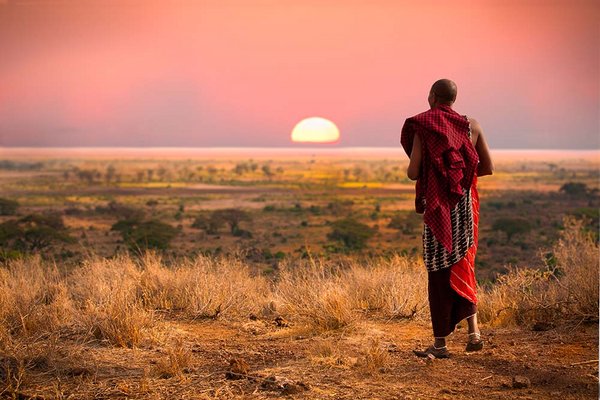The culture in Tanzania is very diverse and interesting. The people here are very proud and live according to various traditions and customs that they have inherited from their ancestors. Many of these customs are still meaningful to the people of Tanzania today and have a significant impact on their lives. Tanzania has a largely rural population that lives mostly from agriculture.
The country is home to over 120 different tribes, each of which has retained its own language. So there's plenty to explore during a tailor-made trip through this East African gem.
Whether it's a visit to the most famous ethnic group - the Maasai, or else to the Mbulu in Mto wa Mbu and Karatu, or to the Chagga at the foot of Kilimanjaro, the Hadzabe and Datoga at Lake Eyasi, or even one of many cultural tours in Zanzibar - each ethnic group offers exciting stories and traditions to experience.
For example, there is the literary Tanzania culture that has been passed down orally for several centuries to discover, which the locals love to tell in colorful stories. This great cultural treasure includes folktales, poems, riddles, proverbs and songs. Most of Tanzania's oral literature is in Swahili, although each of the country's languages has its own oral tradition.
Throughout the country are traces of the Arab presence that spread along the caravan routes between the coast and what are now the Great Lakes countries since the late 19th century. This influence can be seen in various cultural aspects, such as the architecture, the clothing and especially the religion.
About one third of the population is of Muslim faith, the other two are Christians and animists. Animists believe that not only people, but also plants, animals and things have a soul.
The large cities are pulsating with the hustle and bustle of the growing African metropolises. Since the introduction of economic liberalism in the mid-1980s and the democratization of political life in the 1990s, the big cities have also been subject to relative Westernization, which is clearly evident in the choice of clothing and musical tastes. Tanzania's most famous musician is Freddie Mercury, son of Persian parents from the island of Zanzibar.
Wandering through the local markets, you will discover interesting styles of painting and sculpture, especially the colorful Tinga Tinga. The best sculptors in Tanzania are the Makonde people in the south of the country, who produce fine carvings from local hardwoods, especially figures and masks.
Negotiations are conducted in one of the two official languages, Swahili and English, but there are also other lingua francas such as Arabic and Gujarati, the latter spoken by communities originally from the Indian subcontinent.
Tanzania's multiculturalism is also reflected in its extremely diverse cuisine. Arabic and Indian influences can be found especially in the delicious seafood dishes on the coast and the richly spiced dishes. There are numerous Indian and African restaurants on Zanzibar and in the coastal towns, and Zanzibar has a long tradition of traveling merchants who offer their freshly cooked dishes in public places.
From various ceremonies with dances, to building houses with cow dung, to body decoration and animal husbandry, the culture and tradition of the locals in Tanzania is highly interesting and educational.
Would you like to experience the different traditions in Tanzania up close?
Contact us so that we can plan YOUR individual cultural trip to Tanzania!
